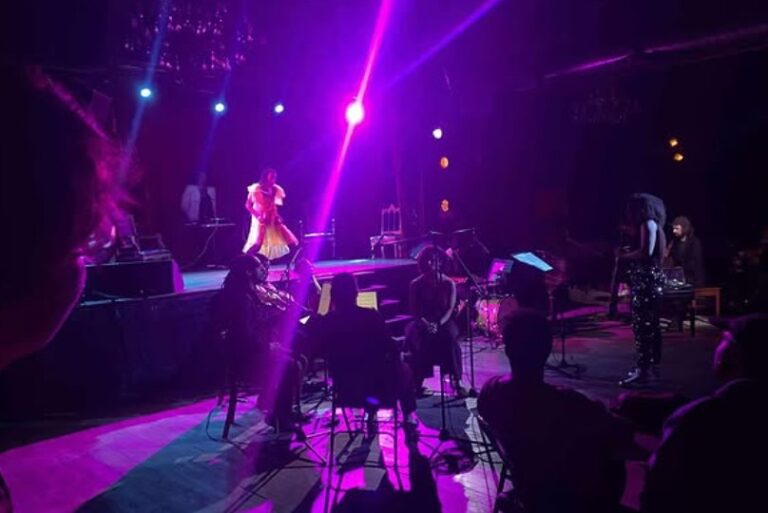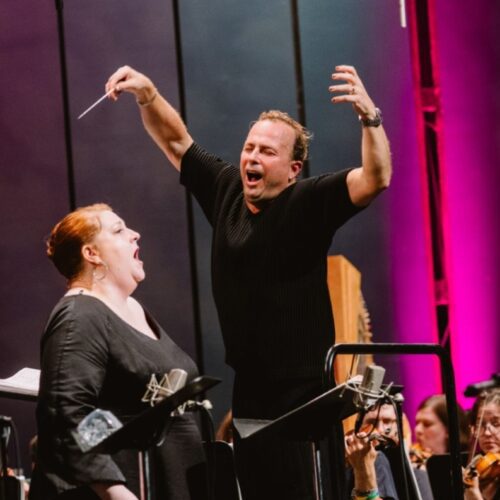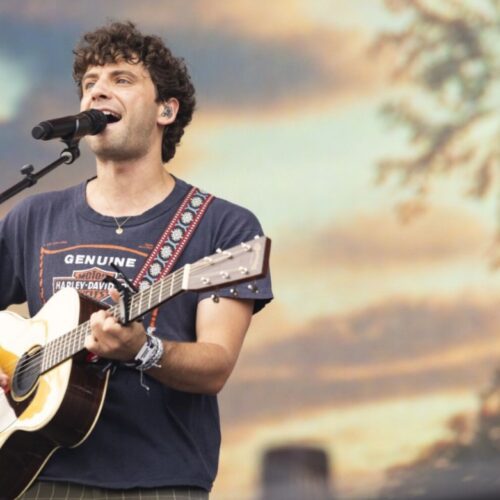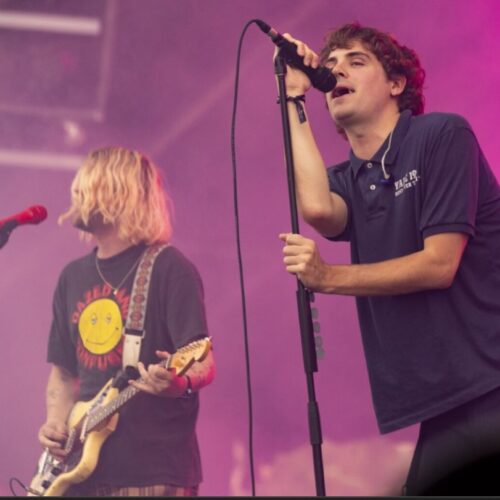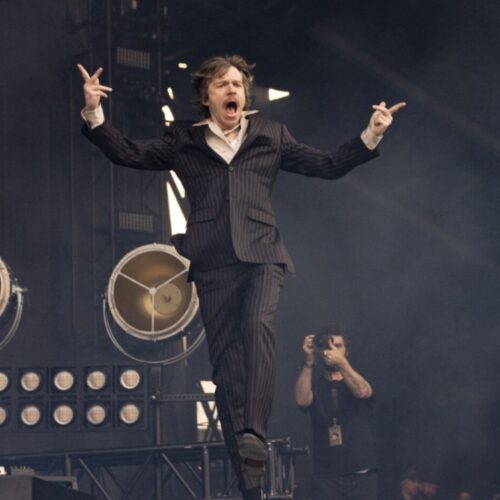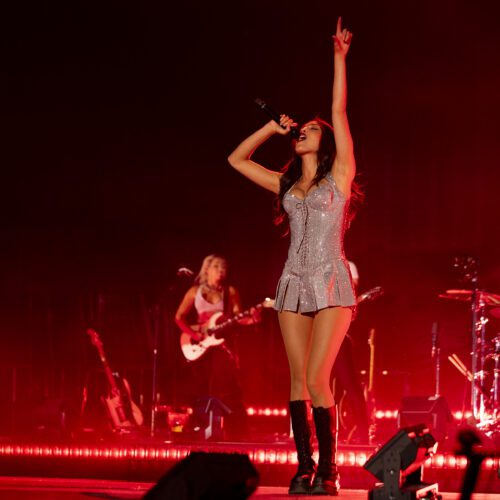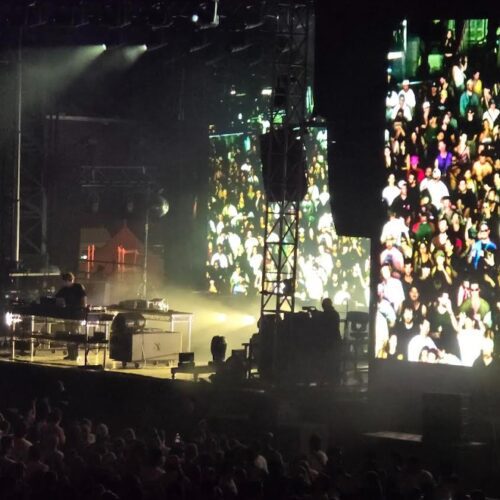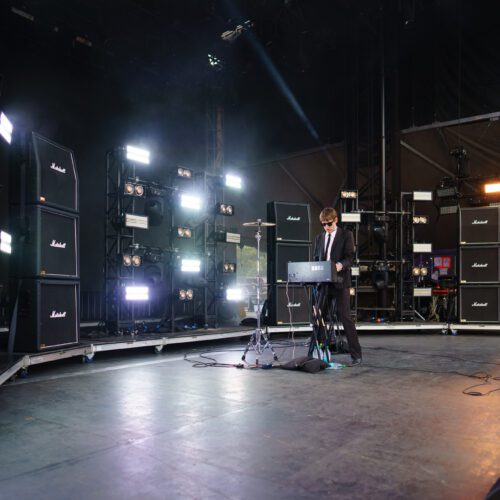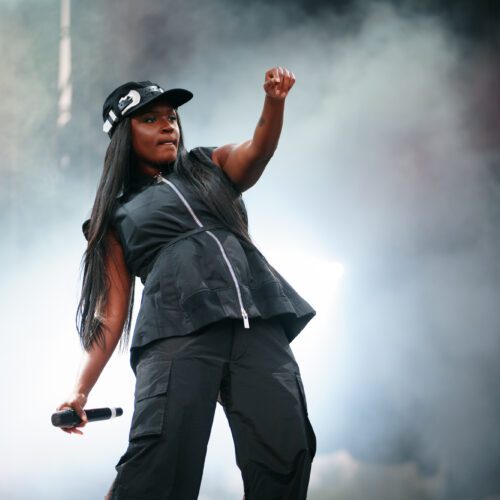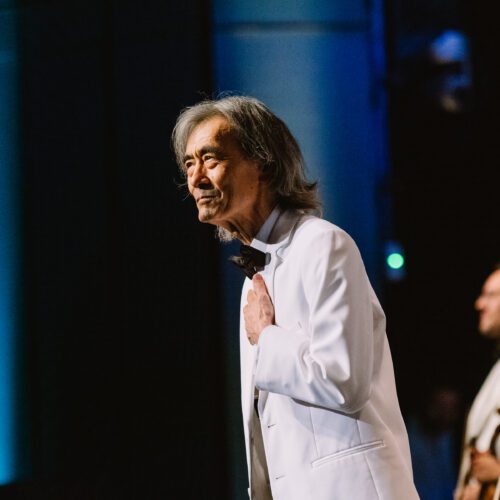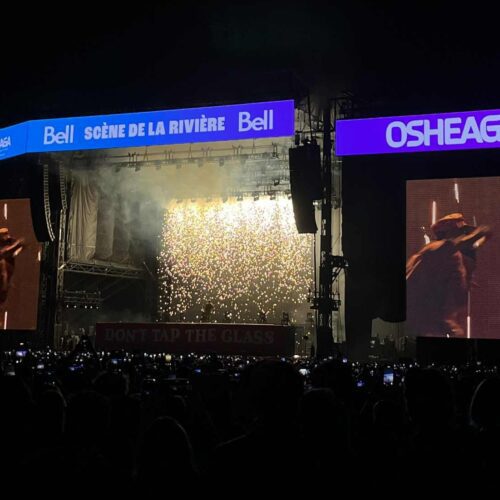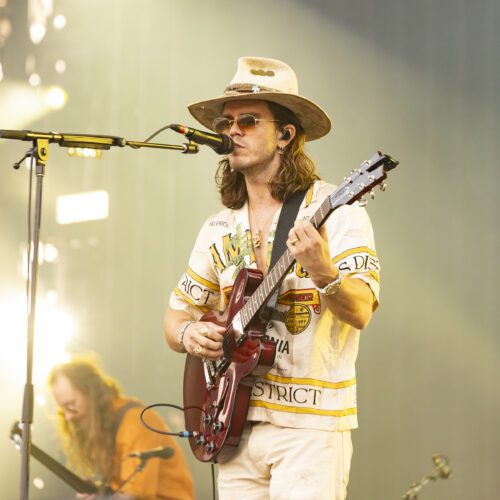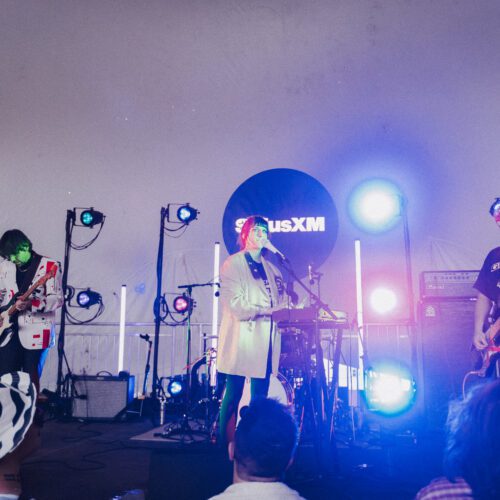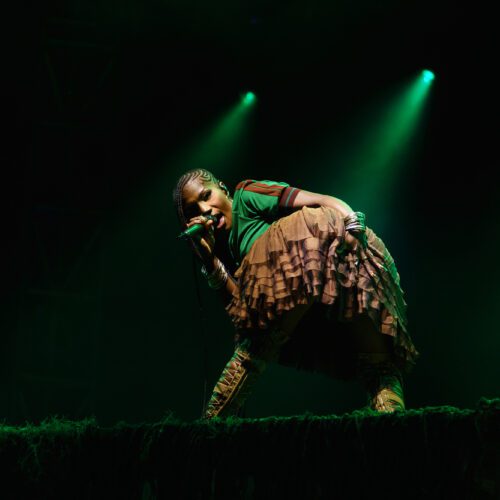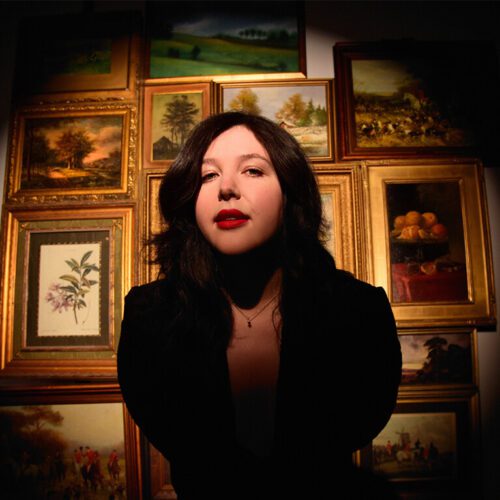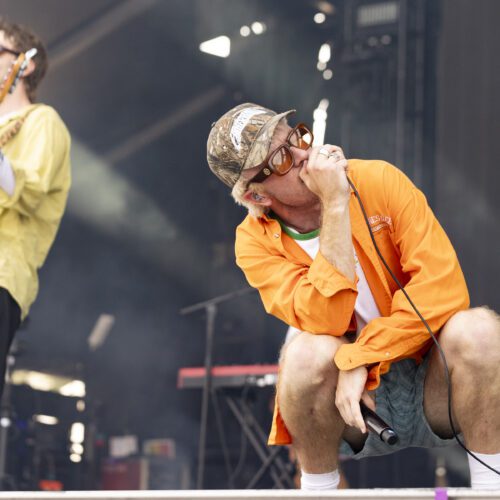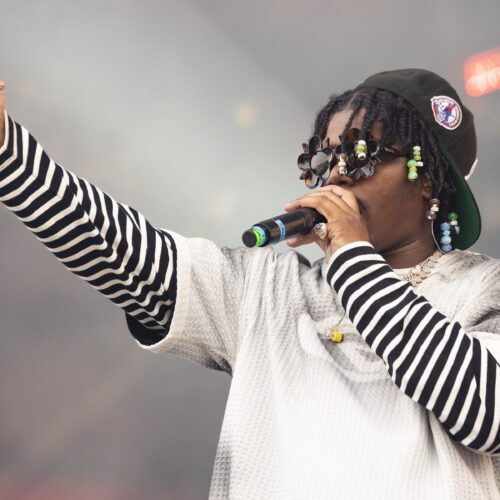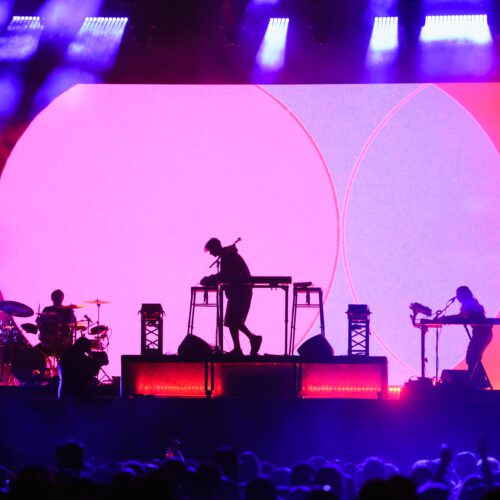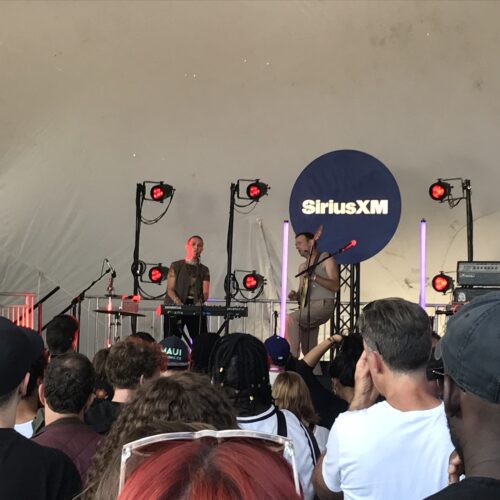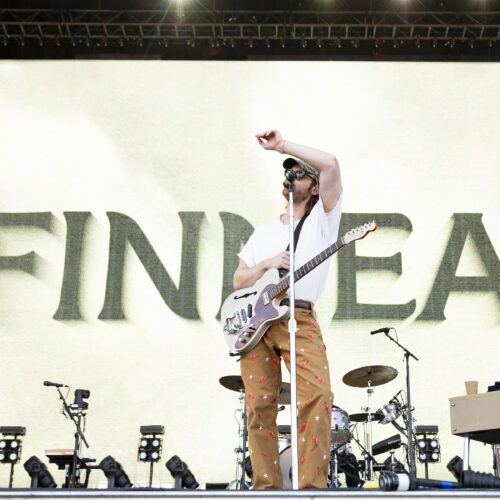The night began in a hush that thundered softly. Alone on stage with his guitar, Alex “Bad Baby” Lukashevsky delivered the kind of performance that makes you rethink what a concert can be. There was no setlist in sight, no need for spectacle, just Lukashevsky’s raspy voice, loose melodies, and a sense of playful vulnerability that felt as spontaneous as it was deliberate.
At times, it was hard to tell whether he was improvising or simply following a map only he could see. “Writing a song can take me ten years,” he admitted between tunes. And it made sense, each piece unfolded like a lived moment, each word weighted with the residue of time. It was less a show than an emotional cartography, and Lukashevsky moved through it with the grace of someone who knows exactly how strange and beautiful that journey can be.
Suoni describe his music as “boisterous and nimble, rambunctious and precise.” Add unclassifiable to the list. Lukashevsky doesn’t just perform songs, he inhabits them, inviting the audience into a soundscape that feels both deeply personal and completely open-ended. It was the most captivating set of the night, and a reminder of the kind of magic Suoni makes space for.
After the intimate spell Lukashevsky cast at Casa del Popolo, we made our way to La Sala Rossa for Cabaret Noir The Musical, a richly layered, multidisciplinary cabaret led by Mélanie Demers and her company MAYDAY, with musical direction by Florence Blain Mbaye. Inspired by the writings of James Baldwin, bell hooks, Frantz Fanon, and Toni Morrison, the show weaved together spoken word, rap, dance, and music to explore the complexity of the Afro-descendant experience.
The format took the shape of a live EP launch and theatrical revue, with Demers acting as host, introducing each act like a series of vignettes in a broader collage. The ensemble brought impressive energy to the stage, with a string quartet, drums, piano, and electronic textures layering behind vocal performances that ranged from soul to hip-hop to experimental song. The concept was ambitious and filled with care; an attempt to build a living archive through performance, one that carries both memory and urgency.
While the sound mix occasionally made it hard to catch the full depth of the lyrics, the emotion and presence of the performers still carried through. There was a real generosity in the way each artist took up space, drawing from theatrical traditions to build something vibrant and collective. Cabaret Noir felt less like a finished object and more like an evolving ritual, one that invites us to listen more closely.
To end the night, we slipped downstairs into the softly lit Sotterenea for the world premiere of Rock Dove, a new project by legendary poetry/soundscape duo Cat Kidd and Jack Biswell. We caught the latter half of the set, just in time to witness Cat Kidd take the stage wearing a crow mask, delivering a lyrical, almost incantatory performance that blurred the line between spoken word and ritual.
Known for their roots in Montreal’s ’90s cabaret scene, Kidd and Biswell’s return felt like a time capsule cracked open, a reminder of a different kind of poetic experimentation. Kidd’s voice rode the edge of slam, weaving odes to urban wildlife, pigeons, and maybe something more ancient and alchemical beneath the feathers. It was strange, theatrical, and oddly tender.
The ambiance downstairs felt quieter, more introspective, a kind of exhale after the bold textures of the earlier shows. A fitting, low-lit close to a night of sharp contrasts and shared experiments.
